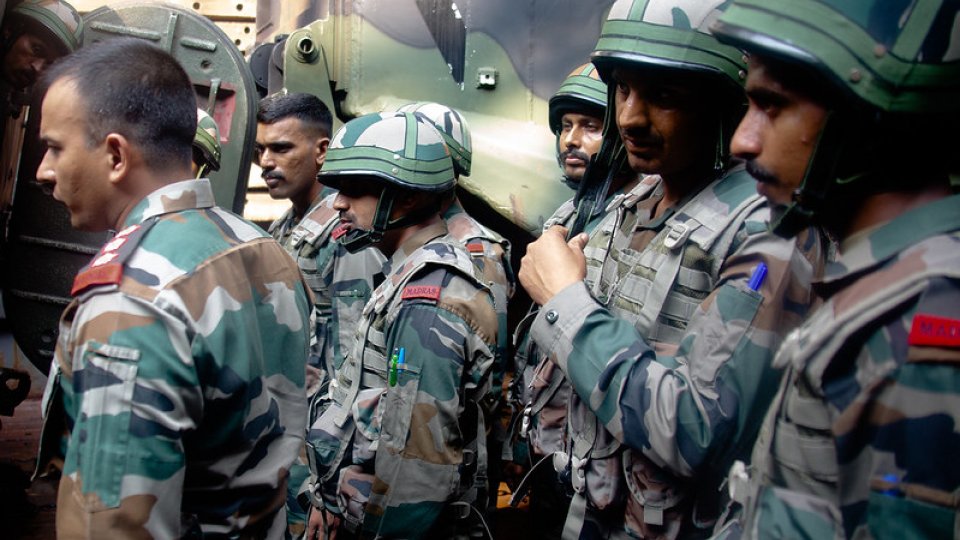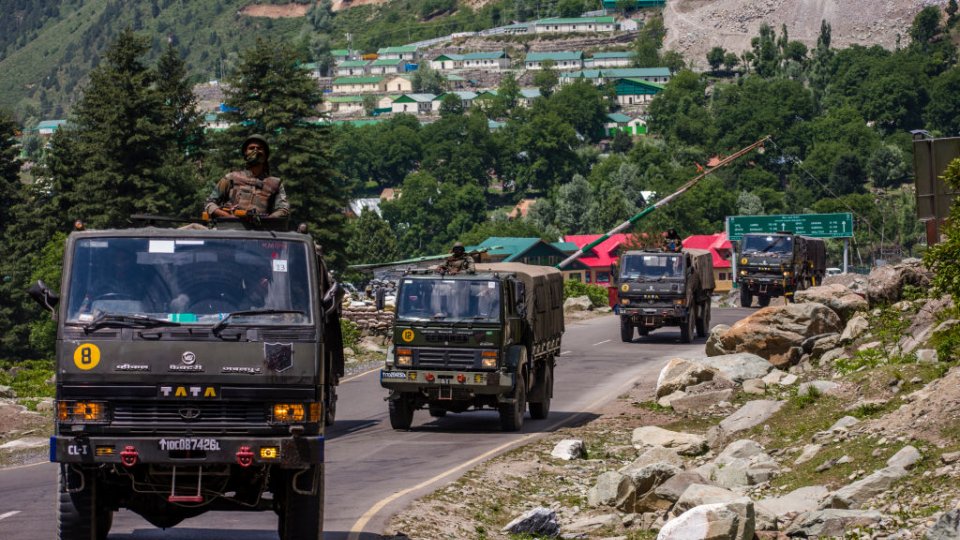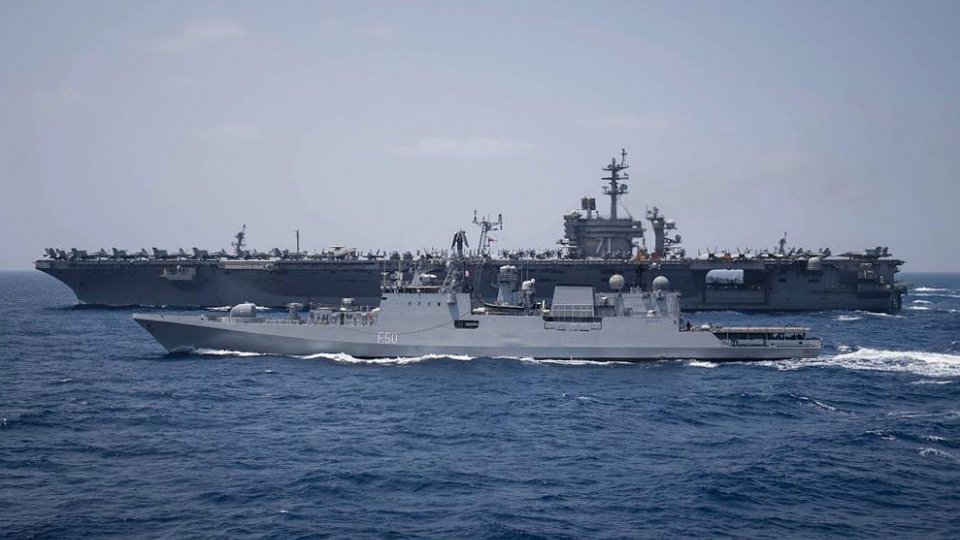South Asia Initiative
In the Spotlight

Upcoming Conference: A New Agenda for Indian Competitiveness
Friday, May 6, 8 AM - 5 PM (Pacific) | Join us in person at Stanford for the South Asia Initiative's inaugural conference, focusing on the role that critical and emerging technologies can play in India’s national security.

AUKUS Seeks to Win the Technology Competition with China
While the Australia-UK-US security pact shows a seriousness about naval power, it shows an even greater seriousness about alliances, argues South Asia Research Scholar Arzan Tarapore.

India Seeks to Reform its Military Amid New Security Threats
The Indian military is falling behind at a time when it faces threats from multiple fronts. Arzan Tarapore talks to DW News about the overdue reforms India must embrace to meet the challenges ahead.
Recently at the South Asia Initiative

India’s Century? A Conversation with Indrani Bagchi

Should War be Left to the Generals? Civil-Military Relations | Anit Mukherjee and Saawani Raje-Byrne

Technology and Democracy in India | Arun Mohan Sukumar and Julie Owono
Upcoming Events
Upcoming Events
South Asia Newsletters and On-Demand Events
Join our mailing list to receive event invitations, analysis, and research updates from our experts and stream our programming with leading South Asia scholars and policymakers on our YouTube channel.
About Us
The South Asia Initiative (SAI) at the Shorenstein Asia-Pacific Research Center (Shorenstein APARC) serves as the University’s hub for policy-relevant research on contemporary South Asia. APARC reestablished SAI in 2020 with the goal of building a unique center of excellence that addresses the region’s most pressing and consequential policy issues.
Our work follows multiple lines of effort: rigorous and high-impact research outputs, including both academic scholarship and general-interest publications; programming that brings world-class expertise to bear on high-interest topics; and collaboration spanning across the world’s key centers of South Asia analysis and key policymaking communities in the United States and across the Indo-Pacific region.
Our goal is to grow into a multidisciplinary research program that makes a globally unique contribution to research, education, and collaboration on South Asia — one that maximizes policy impact by addressing important but relatively understudied issues.
Our Research
The South Asia Initiative’s initial research focus is on regional security issues and the region’s most consequential state, India. We supplement that research focus with programming and collaboration on other countries and issues in South Asia, enlisting networks of experts across Stanford and other centers for South Asia studies.
Lead Researcher
 Arzan Tarapore, PhD
Arzan Tarapore, PhD
South Asia Research Scholar
Arzan Tarapore is a Research Scholar at Shorenstein APARC, where he is charged with restarting APARC's research effort on South Asia. He is also a senior non-resident fellow at the National Bureau of Asian Research. Tarapore’s research focuses on security issues in South Asia and the rapidly evolving strategic landscape of the wider Indo-Pacific. Prior to his scholarly career, he served for 13 years in the Australian Defence Department in various analytic, management, and liaison positions, including operational deployments and a diplomatic posting to the Australian Embassy in Washington, DC.
Research Projects & Publications

Indian Defense Policy
India is an attractive strategic partner to the United States and a key player in the Indo-Pacific, but its defense policy remains understudied. We investigate how India approaches the use of force and prepares its military to manage security threats.

Security in the Indian Ocean Region
Chinese military expansion in the Indian Ocean region poses strategic risks to the United States and its allies and partners. We study these challenges and their implications for policymakers and military planners in Washington and other like-minded capitals.

